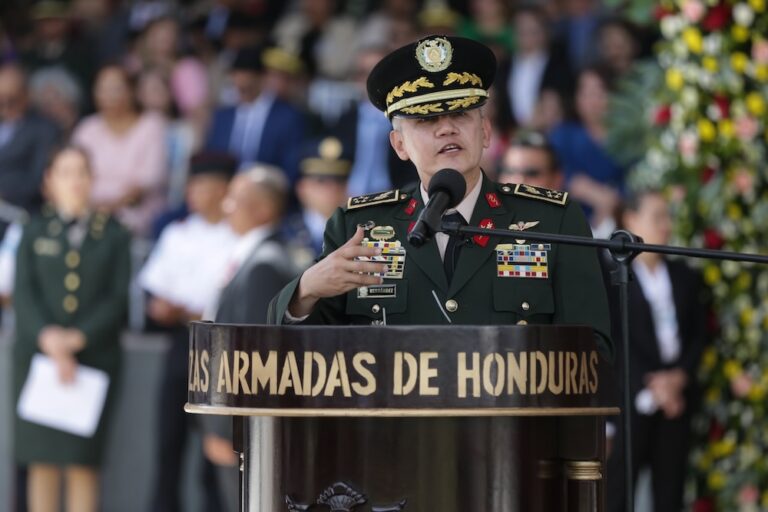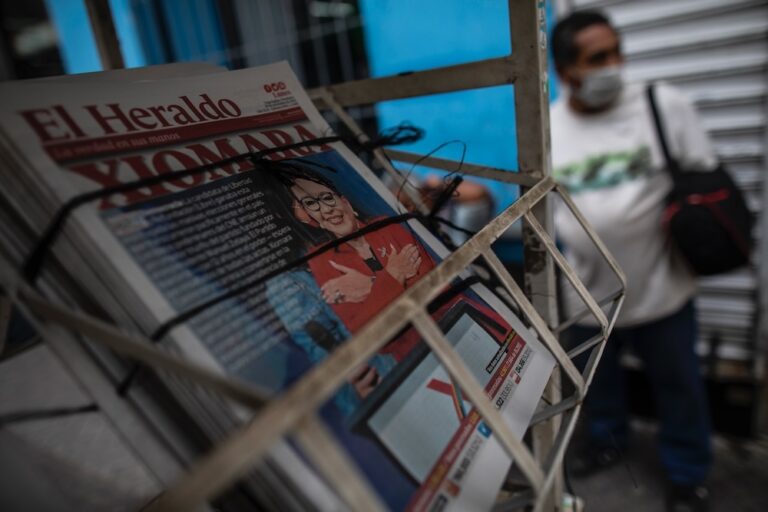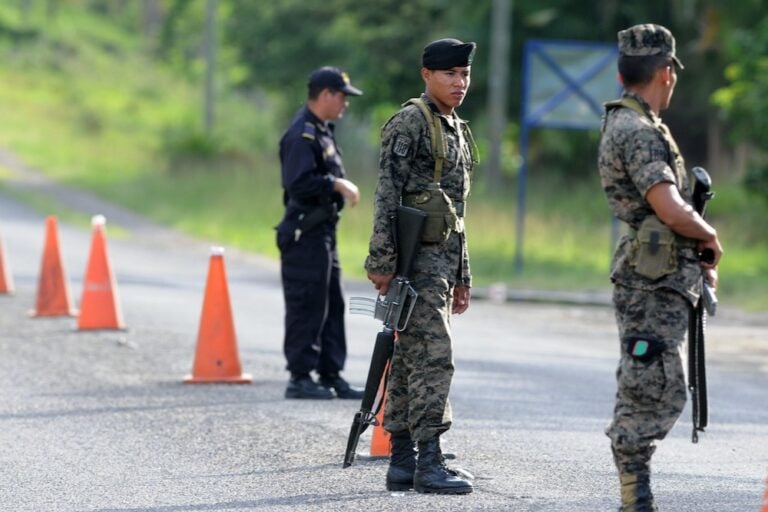(PROBIDAD/IFEX) – During the recent 63rd General Assembly of the Inter American Press Association (IAPA), Honduran President Manuel Zelaya denounced the existence of media oligopolies in this Central American country, oligopolies which, according to him, limit the rights of Hondurans to information and to freedom of expression. “The existence in Honduras of such oligopolies is […]
(PROBIDAD/IFEX) – During the recent 63rd General Assembly of the Inter American Press Association (IAPA), Honduran President Manuel Zelaya denounced the existence of media oligopolies in this Central American country, oligopolies which, according to him, limit the rights of Hondurans to information and to freedom of expression.
“The existence in Honduras of such oligopolies is undeniable, in terms of the major media, especially in the newspaper and television sectors,” said the president. These oligopolies, he held, generally keep “close ties with established political and economic power-holders.” This leads to “a situation of limited media competency, which, in turn, results in a weakening of the exercise of freedom of expression,” he added.
The president also complained about being denied the right to respond. “The only thing I ask of the powerful media conglomerates in my country is that they concede us, or at least concede to the president, the right to reply and to clarify, to give our points of view, a fundamental right that the main Honduran media have denied us to date.”
Zelaya also expressed support for greater public control over the media.
In a 16 October 2007 press conference, various other governmental officials affirmed that Zelaya’s comments to the IAPA on media concentration were apt and timely.
Security minister General Romero Vásquez Velásquez said that some media owners were seeking to bend the government’s will, pressuring the government to be allowed to expand their holdings, but, said Vásquez Velásquez, “the president and I have been emphatic that we will not crumble under this pressure, because we have to defend the interests of society and the state.”
Labour minister Riccy Moncada said it was unfortunate that some radio stations, like HRN and Radio América, deny public officials the right of response. “Today I called both stations, hoping to be allowed to express an opinion on the president’s remarks to the IAPA gathering, but neither gave me the opportunity.”
Moncada added that it is imperative that media fulfill their social responsibility by allowing “the Honduran people to practice freedom of expression such that everyone can equally exercise the right to opine on government policies.”
Defence minister Arístides Mejía said that an investigation would be opened into media tycoon Jorge Canahuati, owner of the newspapers “La Prensa” and “El Heraldo”, for his alleged involvement in arms purchasing under previous governments, and for having allegedly launched a propaganda campaign against Zelaya’s government. Canahuati has not yet publicly responded to these allegations.
This alert was prepared by PROBIDAD with information provided by the Committee for Free Expression (Comité por la Libre Expresión, C-Libre).


